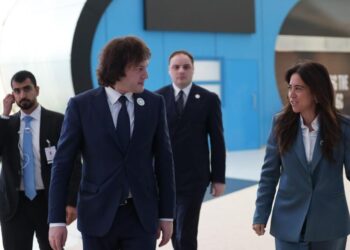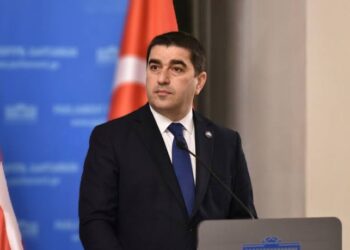A little over a century ago, Sakartvelo was lucky enough to obtain national independence and enjoy its share of freedom and democracy, but for only three years, and with plenty of flies in the ointment. That was purely political luck, which ended up in massive emigration, bloodshed, poverty and the obviation of the idea of liberty. Although the Democratic Republic of Georgia was recognized by all key powers of the time as a modern self-governing autonomous establishment, it turned out to be vitally impotent to keep its people sufficiently fed and clad, socially happy and economically stable.
No sooner had the fledgling democracy fallen, there came a new power to take the helm of the country. That was also political “luck”- a period which lasted 70 years. The Soviet Socialist Republic of Georgia became a part of the USSR, which sought no international recognition, having promulgated its rubber-stamped statehood and formal constitution within the Soviet empire. Yet nor did this new formation give enough social bliss and economic comfort to the Georgian people, although the entire soviet period was packed full of promises of a good life and radiant future.
Time lapsed and Georgia once again received a chance to be an independent democratic state, right after the dissolution of the Soviet Union. The breakup of the Empire was roaring and tumultuous. Georgia was set free, as were all other soviet republics, and was left to its own devices, which meant that the free people of the liberated-from-the-communist oppression nation were to take care of themselves without any hope to be subsidized as they were when the USSR was alive. On the contrary, the de-Sovietized and embittered Russian Federation did its possible worst to snatch away huge chunks of Georgia’s historical territory, thus weakening the former ally to the point of misery.
Notwithstanding all those difficulties, Georgia managed to recover from ruin and desolation, building all over again a society which could be called, without any pangs of conscience, sovereign and democratic, amply endowed with freedom of speech. And again, this was sheer political luck. The rebuilt and renewed Republic was recognized by the entire world as an independent entity, as a member of the United Nations and many other international bodies, recently awarded with the title of candidate state for membership in the European Union.
The progress is clear and present, but, amazingly, even this obvious sociopolitical and economic advancement has not provided the country with a high enough standard of living to keep all of us within this country happily working away for our amply-nourishing bread-and-butter- the amenities and endowments that the contemporary people need for full happiness and reasonable exhilaration.
Where does the blame lie for this, a goal lost on the way from fleeting political luck to stable social contentment and economic coziness? We cannot reprimand nature, because Georgia is located in one of the most favorable geographical areas of the world; we can’t insist that we are a lazy people, because we have clearly sweated and toiled throughout the millennia; we can’t prove to anybody that we lack freedom for self-employment and consequential development; there is no way to blame our education or any other particular field of human activity. Then, what on earth is happening to us? Why are so many of us poised and ready to find a way, be it legal or illegal, to leave the country and find means of survival beyond its boundaries, all while there is no count to the folks of other nationalities who want to settle and flourish here, buying land and real estate, opening businesses and vigorously making their way into our social tissue and economic life? The situation is completely incomprehensible. We have nothing against taking in new blood and sharing our wealth and culture with whoever wants to nest here, but we also want our people to stay here and find the way to a better life. Is this possible? An economist might give a complicated and scientifically corroborated answer to this question. My own suggestion is that there is air enough, land enough, sun enough and water enough in this land to apply our wits and talent to, with which to build a good life. As the saying goes, if there is a will, there’s a way, too.
Op-Ed by Nugzar B. Ruhadze














